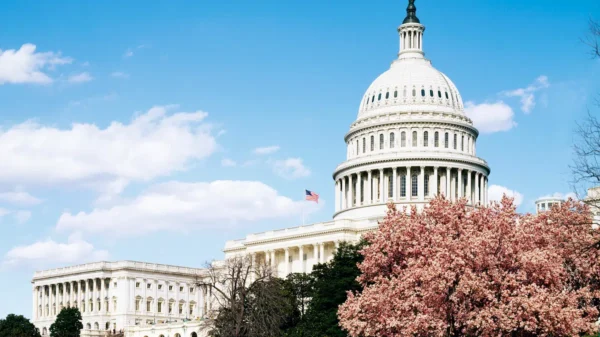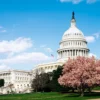The United States legislature is taking big steps towards getting involved in Bitcoin and cryptocurrency.
Nick Begich, a congressman from Alaska, introduced the BITCOIN Act of 2025 into the House of Representatives, which if made into law, would a U.S. Strategic Bitcoin Reserve (SBR). Announced originally on Monday, the bill’s aim would be to otherwise bolster America’s financial security and economic independence.
“America cannot afford to fall behind in this financial revolution,” said Begich “A Strategic Bitcoin Reserve ensures that the U.S. remains an economic powerhouse, leveraging digital assets to counter adversarial monetary policies and reinforce our global leadership.”
The legislation expands on President Donald Trump’s Executive Order, which established the foundation for a national bitcoin strategy. The announcement outlines that the BITCOIN Act mandates the acquisition of 1 million bitcoin over five years, reflecting the scale and strategic importance of U.S. gold reserves.
Begich emphasized the bill’s importance in solidifying that vision, stating that President Trump’s Executive Order established the groundwork for a long-term national Bitcoin strategy, and this legislation ensures the authority needed to turn that vision into reality.
Furthermore, the bill prevents any new taxpayer burden by using Federal Reserve remittances and other budget-neutral strategies to fund Bitcoin acquisitions.
The U.S. Treasury will store all bitcoin holdings in secure cold storage to maximize security and support long-term economic stability.
Read more: Tether attempt at Bitcoin mining ends in court battle
Read more: Trump names five cryptocurrencies to new U.S. strategic reserve
Wyoming senator introduces a companion bill
The bill protects individual rights by prohibiting federal restrictions on private bitcoin ownership and self-custody. Begich urges Congress to take decisive action to ensure the U.S. leads the global digital economy instead of falling behind.
Additionally, Senator Cynthia Lummis of Wyoming introduced a bill in the Senate to help establish bitcoin as a financial asset.
“Bitcoin is not simply a technological opportunity, but a national imperative for America’s continued financial leadership in the 21st century,” Lummis said.
Since Donald Trump’s election, his administration has made significant moves toward integrating cryptocurrency into the U.S. financial system. Trump’s Executive Order in 2018, titled “A Policy to Support Financial Innovation,” set the stage for a cryptocurrency national strategy. This order directed various federal agencies to evaluate blockchain technology and digital currencies. The order also focused on seeking ways to improve the U.S.’s global competitiveness in the crypto space.
Key figures, like Treasury Secretary Steven Mnuchin and former CFTC Chairman Christopher Giancarlo, helped shape the crypto landscape under Trump. Mnuchin, for instance, emphasized regulation to ensure cryptocurrency’s potential without threatening national security. Additionally, Trump’s administration supported the development of the U.S. dollar-backed digital currency, exploring its role in global markets.














